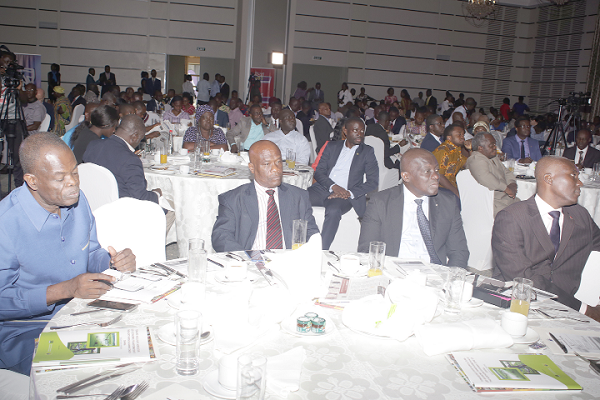
SADA boss urges support for agric in savanna zone
The Chief Executive Officer of the Savanna Accelerated Development Authority (SADA), Mr Charles Abugre, has appealed to the government to consider some preferential policies for the agricultural sector in the northern savannah zone of the country.
Advertisement
He said those who had tried to cultivate crops such as maize and rice in the northern part of the country had faced challenges such as high energy and diesel for pumping.
Mr Abugre therefore, called for a preferential policy on energy, for instance, was critical to making agriculture work in the savannah region.
He made this submission at the GRAPHIC BUSINESS-Stanbic Bank breakfast meeting in Accra on the theme: ‘Securing the Economy with Agriculture.’
The event was attended by stakeholders within the agricultural sector value chain, most of whom commended the GRAPHIC BUSINESS and Stanbic Bank for creating such a platform to discuss a major sector in the economy with the potential to transform the country’s economic fortunes.

Savannah features
Mr Abugre said savannahs all over the world had over 65 percent of plain arable land, suitable for grains and livestock.
He said feasibility analysis in the last two and half years in the northern savanna suggests that only sorghum, shea butter and to some extent, groundnut, among others, could thrive close to maximum yields without irrigation.
“They need irrigation. Fortunately, in the northern savannah, every year, well over 40 million table metres of water on the average pounce on the ground and runs off.
A strategy for organising that water and channelling it to irrigation is critical for any of these crops to thrive,” Mr Abugre said.
He said the soil in the savanna suffered three main problems: acidity; it had serious phosphoric deficiency and serious organic matter deficiency but was endowed with large quantities of limestone.
“The transformation of the Brazilian savannah was based on harnessing such large quantities of limestone to address acidity. If that could also be a priority policy of the ministry, it will augur well,” he said.
He added that crops had a maximum impact on the economy if they were so organised and they also promoted processing and value addition.
He said they were also closest to the areas of production, but that required organising infrastructure such as roads, energy and water and to ensure volumes that required a mixture of farm sizes, small, medium and large.
That, he added, meant that the strategy should also include clustering and deliberately organising the situation that would stimulate it.




